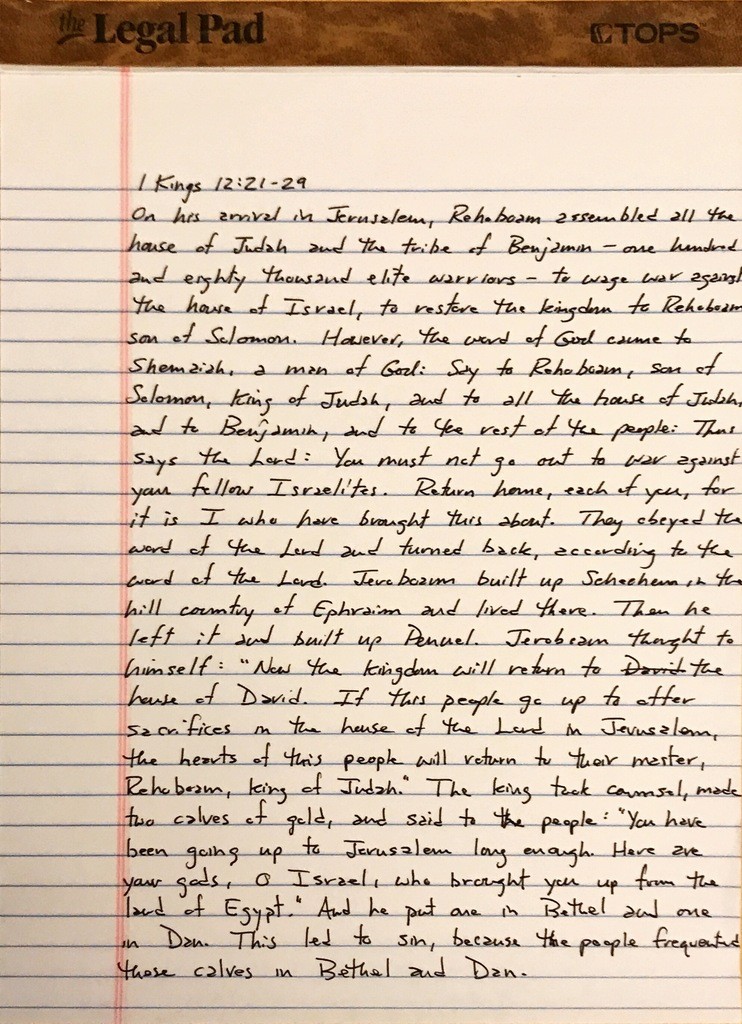
Rehoboam’s Repentance

Synopsis 1Kings 12:21-29 5/6/2019
The ten northern tribes of Israel rebelled against King Rehoboam because of his harsh treatment. Despite this, the new king attempted to force labor from them. But instead of coming to work, the northern tribespeople killed the head overseer, whom the king had sent.
So, Rehoboam returned to Jerusalem and built-up an army. He gathered men from the tribes of Judah and Benjamin. In the end, he assembled one hundred eighty-thousand warriors. But, as he prepared to engage the northern tribes, a prophet of the Lord came to him.
The prophet’s name was Shemaiah. And he informed Rehoboam that the rebellion of the northern tribes was part of God’s plan. Furthermore, he told Rehoboam not to fight against the rebels. Accordingly, Rehoboam abandoned his plans to destroy the rebellion through war.
Rehoboam’s Repentance
Initially, Rehoboam closed himself to receiving wise counsel. And his failure resulted in the Israelite nation dividing into two parts. Yet, only a few days later, he demonstrated a keen sensitivity to obey a God-sent prophet.
And in obedience, he even cancelled his plans for war. Remarkably, the northern tribes were likely to see this as a sign of weakness. And Rehoboam knew this. But, something changed for Rehoboam as a result of his prior moral failure. He discovered the “fear of the Lord”. And this discovery led him to a new level of wisdom.
Struggle, Loss and Repentance
One of the strangest aspects of the Christian walk is the connection between sin, grace and relationship with God. For when I sin, and I confess my sin, God forgives me. And the experience of forgiveness often makes me feel closer to God than I did before I sinned.
So, this begs a question. Should I keep on sinning so that I have additional opportunities to feel close to God? The apostle tells us that relationship doesn’t work that way. Much as I might try, I can’t game God.
On the other hand, it really is true that in my moments of moral failure, I grow more aware of God’s goodness and grace. It is as the Messiah once said, “He who is forgiven of much, loves much.”
God’s utter goodness is manifest succinctly in the sacrament of reconciliation. It is a mysterious wisdom that converts my moral failure into the joy of a deeper relationship with the God of all Creation.
“A clean heart create for me, God; renew within me a steadfast spirit.” Psalm 51:12

